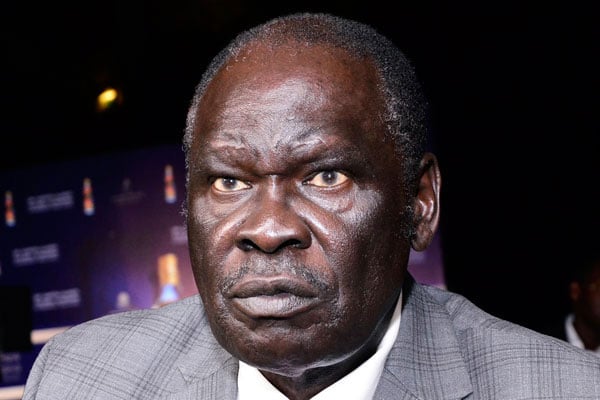Govt needs Shs660 billion to combat food insecurity

A woman unwraps a biscuit for Ms Lotyang Napwon Lopwoni, 69, of Longaroe Sub-county, Kotido District. PHOTO | TOBBIAS JOLLY OWINY
What you need to know:
- The government has relied on ad hoc measures to handle food crises, but the committee led by Ms Janet Okorie-Moe recommends the allocation of Shs400 billion to boost food production, establish silos, and food reserves
The Ministry of Agriculture, Animal Industry, and Fisheries (MAAIF) in Uganda has announced that it needs Shs660 billion to tackle the country's food security challenges.
The recommendation was made by the Committee on Agriculture, Animal Industry, and Fisheries as part of the sector's budgetary allocations for the Financial Year 2023/2024.
The government has relied on ad hoc measures to handle food crises, but the committee led by Ms Janet Okorie-Moe recommends the allocation of Shs400 billion to boost food production, establish silos, and food reserves.
The committee also suggested the allocation of Shs110 billion to refund government agencies that were tasked with increasing food production and animal feeds during the recent famine.
Shs150 billion was also recommended for large-scale farmers across the country that have already been profiled by MAAIF.
Legislators commended the move to increase funding for the National Agricultural Advisory Services (NAADS), whose services they said were commendable.
Mr Patrick Ocan, Apac Municipality MP, asked for increased funding for post-harvest handling and storage facilities, citing Uganda's history of product rejections in neighbouring countries due to poor quality.
The Minister of State for Animal Industry, Mr Bright Rwamirama, stated that the ministry is struggling to preserve indigenous crop species that are drought-resistant.
This publication understands that the government has collaborated with other ministries, departments, and agencies to formulate policies, strategies, programs, and plans to address food insecurity.
Background
According to the United Nations, approximately 2.4 million people in Uganda are facing acute food insecurity, with the number expected to rise to 3.5 million by June 2023.
This is due to a combination of factors including climate change, conflict, and the Covid-19 pandemic.
The government's efforts to combat food insecurity have been hampered by the lack of a clear food security policy and strategy.
Uganda has implemented several programs to combat acute hunger, including the National Agricultural Advisory Services (NAADS) and the Agriculture Cluster Development Project (ACDP), which aim to improve agricultural productivity and enhance food security but have also faced tremendous challenges.




